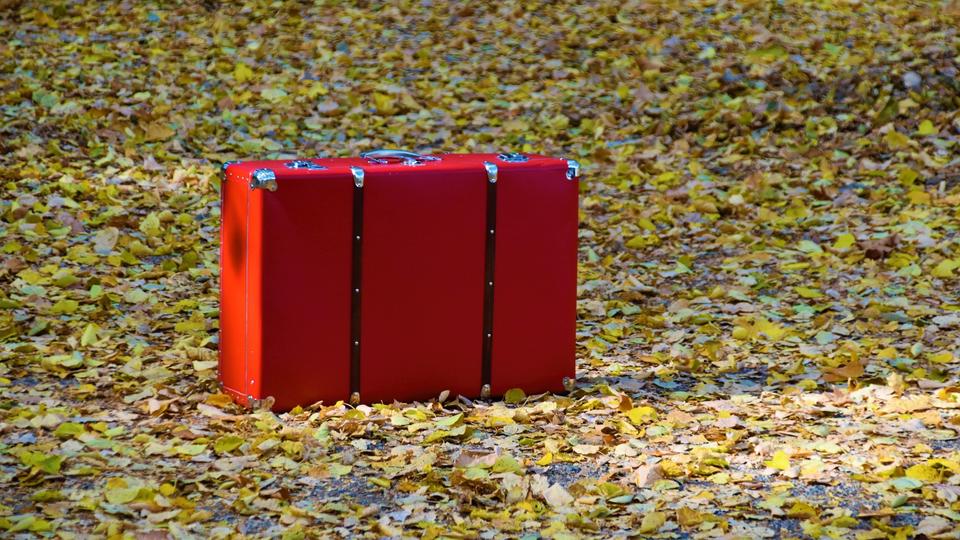
A Time To Hate
What Makes Ordinary People Turn Hateful?
A Q&A from Michelle "Mikki" Hebl with Ben Waserman
What Makes Ordinary People Turn Hateful?
This article originally appeared in Gray Matters as "How do we learn to hate?"
Twenty years ago I began my career as a professor at Rice University. I hired a company called AV/Tech to install video cameras in my behavioral lab, and Ben Waserman, the owner, showed up to install them.
Ben and I struck up a conversation that would turn into a long friendship. One thing that drew us together was our desire to understand discrimination. This was the topic I did (and continue to do) my research on as a professor of psychology and management, and Ben, as I would learn, was a Holocaust survivor. Before moving to the U.S. and serving in the Air Force during the Korean War, he was born in Berlin, and he spent two years in a German concentration camp as a teenager. He lost several family members for no other reason than they were Jewish.
Ben was the first person I had met who had survived the Holocaust. His positive outlook and easy sense of humor were stunning to me. He didn't always like to talk about his experiences, but he had a change of heart when Holocaust deniers started to emerge. I invited him to speak at Rice about what he had seen and what had happened to him. It was chilling, eye-opening. We all became aware of how special Ben is and how intensely horrible a culture of hatred can become.
No one is born with hate. It is a learned process, and it is easily taught, but we know it has a deep connection with fear. We hate someone because we are afraid they will harm us or our loved ones. We hate someone because they perform deeds that offend our beliefs. But Ben's experience shows us that hate must be actively resisted and that our leaders must lead by example.
This is a conversation I had with Ben earlier this year.
Q: What was it like to live as a Jew in Berlin while Hitler ruled Germany?
A: When I was very young, I did not know what was going on, but I knew that we were not liked. German kids wouldn't play with me, and we were never invited to Germans' homes. Hitler was running a very successful propaganda machine. He had all books burned by authors who did not agree with his philosophy. He took over all radio stations so Germans could only listen to his type of news propaganda. He even confiscated all art that he considered vulgar. Textbooks taught that Jews were inferior and that Germany and Germans were superior. There were posters everywhere telling Germans not to buy from Jewish businesses and that showed Jews to look like cheats with big noses. We could not go to public parks, and we could not own pets. Germans were warned not to work for Jewish businesses, and intermarriage was against the law. Jews could not go to universities, could not work for the government nor practice law.
The first real act of terror I saw was in 1938, when German thugs with the protection of the police and the SS broke into Jewish homes, businesses, synagogues and schools. What they didn't steal they destroyed and set on fire. The event was called Kristallnacht, or Night of Broken Glass. Many Jews who resisted were either killed or sent to Dachau concentration camp. My father lost his business, and we lost our home.
Q: Why didn't the Jews get out of Germany and move to another country?
A: That is a good question. In those days it was difficult to get the necessary papers to leave, but most of all, most countries had very strict immigration quotas and sponsorship requirements to enter. My parents tried for years to come to the U.S., but were refused because they did not meet the necessary entrance requirements
Q: Did you experience any personal violence before you were sent to the camp?
A: Many times. I remember three in particular. In one, a German officer hit my father in the face in front of us so hard that my father fell to the ground, just because he didn't give the Nazi salute when the flag went by during a parade. On another occasion, a German man beat the hell out of me on the street, all the while calling me "a dirty Jew."
But the most memorable was when a German guard hit my mother and pushed her to the ground when she was eight months pregnant, just because she wanted to see my father after he was arrested and taken to a holding center. I was just 10 at the time.
Q: What happened after that?
A: My father was released, but was rearrested a few months later and sent to Buchenwald concentration camp, where he was murdered. My uncle was shot in Gross Rosen, and my aunt and cousin perished in the Auschwitz gas chambers. My mother and I knew we would be next, so we packed a few things, removed our Jewish stars, which we had to wear, and together with my baby brother, moved to another part of town. Berlin was being bombed by the Allied air forces almost every night, and we figured with all this chaos they would forget about us. But the Gestapo found us after about a year and sent us to Theresienstadt concentration camp. It was a former Czech garrison built for about 8,000 soldiers. When we arrived, there were 58,000 prisoners, all in a space built for 8,000. There was no indoor plumbing, no medical facilities, no heat or air-conditioning. The camp was primarily a transport point to the extermination camps. Hitler called it a model camp and even invited the Red Cross to visit.
We were there two years, and it was pretty miserable. However, we made some good friends, which was a blessing. One of them worked in the camp bakery, and he got me a job there that literally saved my life, because I was so undernourished then. He and his brother and one other formed a friendship with me that lasted until two of them passed away a few years ago. One is still in touch with me every holiday and birthday.
After two years there, we were liberated by the Russian army, and after a brief quarantine, sent to a displaced persons camp in the American zone. We were there a year while I received some schooling and prepared for entry to America.
We arrived in New York in 1946, then moved to Philadelphia, where my mother and I found jobs and I and my brother enrolled in school. We were not exactly welcomed, because we were immigrants and considered "greeners," a nickname for people who don't know anything. We were fast learners. I graduated high school and joined the Air Force. Everyone warned me that I would experience anti-Semitism there. So I never advertised that I was Jewish, but I didn't hide it, either. I went to synagogue on all the high holidays and sometimes on Saturdays, but I had very little trouble. I learned all I could and was very good at my job and that earned me a lot of respect and quick promotions. I spent two tours overseas, one in Korea during the war in 1952. I flew 75 combat missions and was lucky never to be hurt.
When I returned, I was stationed in Savannah, Georgia. This was late 1952, before the Civil Rights Acts went into effect. I was appalled at the discriminatory activities toward the black population. The separate water fountains and bathrooms and the restaurants that were off-limits to blacks and all the open hostilities reminded me of Hitler's Germany.
I was later transferred to Louisiana, which wasn't much better. I took all the flying time I could get to get away, and in 1954 took my discharge to go to college. I went to New York and from there I applied to numerous universities. They all turned me down because I did not have enough high school credit. The exception was the University of Houston. They told me that if I passed the entrance exam, I was in. I did.
Houston had a lot of discrimination, too. I still remember the signs in restaurants: "We don't serve Negroes or Mexicans." Well, I made sure I didn't eat there either.
After college, I worked as an audio engineer for a few years and then went into business for myself. Having served in the military I knew how to run a tight ship. I never cared where a person came from as long as he did quality work, respected everyone and made a good appearance.
One of the first people I hired was a fellow who had just come from Australia and had a strong Australian accent. I never knew that he originally had come from Germany. His father was a German officer killed during the war. He was born a year before the war ended and he talked about a Jewish couple who after the war helped him and his mother. He had no objections to working for me, and I felt the same. Even though we never became close friends, I respected him, and he respected me. He worked for me for about 25 years and was one of the best technicians I had.
I made it a point never to discriminate, and I made it a rule that I would not tolerate any discriminatory remarks or action in my company. I had one fellow who constantly let everyone know he did not like Mexicans, and I warned him repeatedly. One day he told me I ran the company like a concentration camp, and that did it. I fired him on the spot.
Q: How can we prevent discriminatory behavior in the American workplace?
A: It has to do with company policy. First, we establish what kind of company we want to be. Do we really want to give everyone equal opportunity, do we want to give everyone respect, do we want tolerance and cooperation, do we want a good appearance and whatever other quality we as a business need to succeed?
Then management has to lead by example and show that they practice what they preach. If you want respect, you give respect. Never go back on your word and give praise when it is deserved. Only reprimand in private and solve the problem if one exists. It is like raising children. You lead by example.
A country is the same as a corporation. The character of its leaders is reflected in the population. If the government preaches hate, there will be hate, and Germany was a perfect example.
Q: With all you have been through, how do you maintain such an upbeat attitude?
A: I have my dark moments when I feel sorry for myself. But then I look at my life and my beautiful children and grandchildren, a comfortable home, a nice car, good friends, 63-year marriage to the same beautiful woman, a comfortable retirement from a successful business, many years of good health, and I say, How lucky and blessed can one get?
And I am thankful.
Michelle "Mikki" Hebl is the Martha and Henry Malcolm Lovett Cair of Psychology at Rice University and a professor of management at Jones Graduate School of Business at Rice University.
Never Miss A Story


